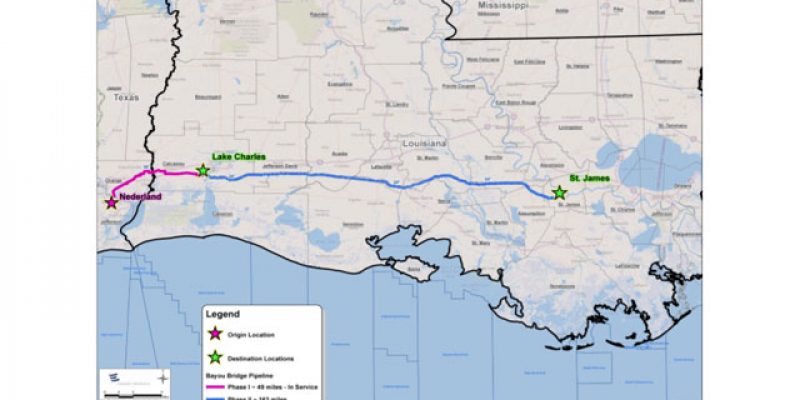Editor’s Note: A guest post by Cameron Pontiff, Deputy Campaign Manager for Gus Rantz for Congress last year. The Bayou Bridge pipeline received a permit to move forward with construction by the Louisiana Department of Natural Resources yesterday.
During Guz Rantz’ election campaign for U.S. Congress, members of the campaign team and I devoted much thought and attention to means by which the state of Louisiana could improve its economy and the welfare of its residents. While these topics naturally spanned a broad range of issues – from healthcare to government regulations – one goal united our objective: to preserve Louisiana’s way of life.
To that end, one industry in particular that has generated positive impacts to that way of life for decades has been the energy industry. The transportation and refining of energy resources that occur throughout the Gulf Coast have created good-paying jobs for Louisiana residents, generated countless millions in tax benefits for local communities, and provided a stable foothold for the state in today’s global economy.
One project that would continue this series of positive impacts is the Bayou Bridge Pipeline. The project will transport crude oil from Lake Charles to St. James, carrying up to 480,000 barrels per day safely and efficiently to refineries in the Baton Rouge area. Those resources can then be developed into the many hydrocarbon-based products that businesses and consumers rely on each and every day – from fuels and lubricants to plastics and even medicines.
The construction process will create a number of benefits in its own right. Generating as many as 2,500 construction jobs, Bayou Bridge will provide wages for dedicated tradesmen and women. Additionally, the project is committed to working with local vendors when possible in purchasing goods and services for the pipeline – as just one example, the Bayou Bridge Pipeline has already contracted Baton Rouge-based Stupp Corporation to manufacture 100% of the steel pipe, ensuring that the project will be American made and keeping a number of Louisianans gainfully employed in the process.
Additionally, local communities in Louisiana are sure to see benefits from the Bayou Bridge Pipeline – a $750 million investment in the state, the project will generate an estimated $1.8 million in property taxes during the first year of service, along with approximately $17.6 million in sales tax during construction. These funds can go a long way toward the betterment of Louisiana’s schools, roads, and other public services.
Just as important, the Bayou Bridge Pipeline will not result in any adverse impacts to those same communities or to the environment of Louisiana. As one of the most advanced projects of its kind, Bayou Bridge will employ state-of-the-art technologies during construction and operation, including around the clock monitoring and the restoration of any affected property to pre-construction elevations and contours. The project will preserve Louisiana’s priceless wetlands and natural habitats, while facilitating the safe transport of much-needed energy resources.
Ultimately, updating Louisiana’s energy infrastructure with the Bayou Bridge Pipeline will not only create short-term benefits during the construction process – it will ensure the long-term viability of the energy industry of the state and guarantee its safety through reducing our dependence on transporting crude oil via train, truck and other less safe methods. In this manner, Bayou Bridge can preserve – and even improve upon – Louisiana’s way of life.
Advertisement
Advertisement

